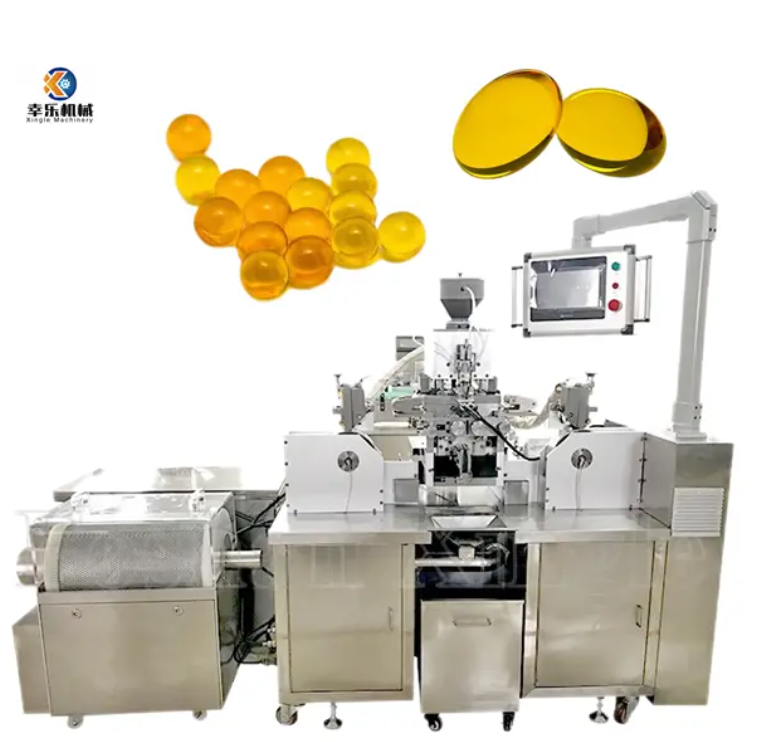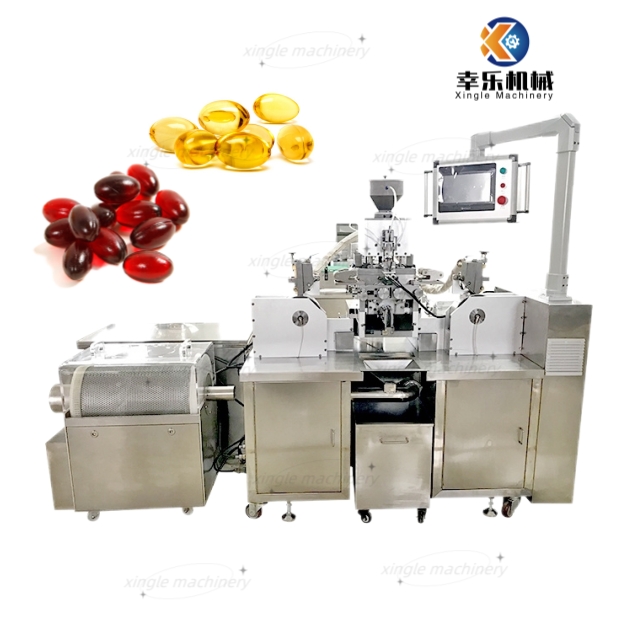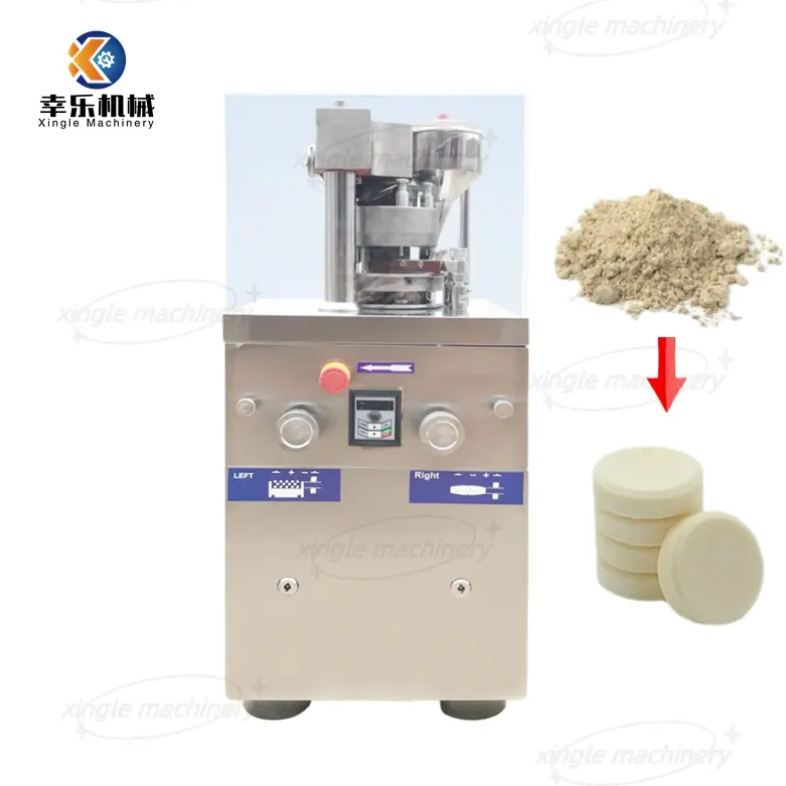








Choosing between softgels and tablets can be tricky, as each has its own advantages and drawbacks. Do you need fast absorption or a longer shelf life? Understanding these factors is essential for making the right choice. In this post, brought by Xingle, we'll break down the key differences between softgels and tablets, their benefits, and what to consider when choosing the best option for your needs.
Softgels are a type of capsule made from a soft, airtight outer shell, which contains liquid or semi-solid ingredients. The shell is usually made from gelatin or plant-based alternatives, and it ensures the ingredients inside remain protected and stable.
Softgels are perfect for oil-based or fat-soluble supplements, such as omega-3, CoQ10, and some herbal extracts. They allow these oils to be absorbed faster by the body due to their liquid form, providing quicker benefits. Additionally, softgels are easier to swallow than many other forms of supplements, and they're often more comfortable for those who have trouble with larger pills.
Tablets are solid forms of medication or supplements, created by compressing powdered ingredients into a specific shape. These powders often include active ingredients and binders, which hold everything together to form a solid mass.
Tablets are versatile, suitable for various dry, powdered formulations like vitamins, minerals, and certain medications. They can be coated for smoother swallowing or to control how the ingredients are released in the body. Tablets also come in a variety of sizes, which can be split or crushed, making them a more flexible option in some cases.
The production of softgels is a precise and multi-step process. It starts with encapsulating liquid or semi-solid ingredients inside a gelatin or plant-based shell. The shell is formed into a soft, airtight capsule that securely holds the ingredients inside.
To create softgels, specialized equipment such as a rotary die encapsulator is required. This machine simultaneously forms the gelatin shell and fills it with the liquid ingredients, before sealing it tightly. It also regulates key factors such as temperature, viscosity, and pressure to ensure the ingredients stay stable and effective. Environmental controls are essential, as even small changes in moisture or temperature can compromise the final product's quality.
Tablet production begins by blending powdered active ingredients and excipients, which are substances that help bind the powders together. If necessary, the powder is granulated, which makes it easier to compress into a tablet form. The resulting mixture is then subjected to high pressure in a tablet press, which shapes the mixture into solid, uniform tablets.
Tablets are more versatile in their production process compared to softgels. Depending on the desired release profile, tablets can be coated with materials that help control how the ingredients are released in the body, such as immediate, delayed, or extended-release formulations. This flexibility also allows for a wider range of production, from basic tablets to specialized versions. With modular production lines, scaling up or adjusting to different tablet types is relatively easy, making them cost-effective for large-scale manufacturing.

When it comes to absorption, softgels generally have the upper hand. Since they contain liquid or semi-liquid ingredients, they dissolve quickly in the stomach, allowing the active ingredients to be absorbed faster. This is especially helpful for fat-soluble ingredients like omega-3 or CoQ10.
In contrast, tablets need to break down before the body can absorb the active ingredients. This process can take longer, and some ingredients may lose potency during this time. Oil-based ingredients, in particular, tend to absorb better in softgels, while water-soluble ingredients can be effective in either format, though tablets may have slower absorption rates overall.
The way each format breaks down in the digestive system also impacts absorption. Softgels dissolve faster and more efficiently, which is why they are preferred for quick absorption. Tablets, depending on their formulation and coating, can take more time to break down and begin the absorption process.
Swallowing softgels is often easier for many people. Their smooth, rounded shape and soft texture make them glide down the throat with minimal discomfort. This makes softgels ideal for those who struggle to swallow pills or capsules.
Tablets, on the other hand, can be more difficult to swallow, especially if they're large or uncoated. Some individuals may find it harder to take tablets without water, and larger tablets might cause discomfort or even lead to choking. In some cases, tablets can have a chalky texture, which adds to the swallowing difficulty.
Softgels are often seen as more premium due to their smooth texture, easy swallowing, and odorless nature. They also provide a more pleasant experience overall, which is why many consumers prefer them. The gelatin shell helps mask any bitter or unpleasant taste of the active ingredients inside.
Tablets, while familiar and widely trusted, can leave a bitter aftertaste that some people find unpleasant. Additionally, the texture and size can affect the overall swallowing experience. While many consumers are used to taking tablets, those who have difficulty swallowing or prefer a smoother experience may opt for softgels instead.
Psychologically, the choice often comes down to comfort and preference. Many people associate softgels with a more premium, high-quality product, while tablets are seen as more practical and familiar.
Softgels have several advantages. They are known for their enhanced bioavailability and faster absorption. The liquid inside dissolves quickly, making it easier for your body to absorb the active ingredients.
The smooth texture and minimal taste are also key benefits. Unlike tablets, softgels don't have a chalky texture or unpleasant flavor, which makes them easier to swallow for many people.
Another benefit is their tamper-resistant nature. The sealed shell offers added security, reducing the risk of contamination. This also gives softgels a more premium appeal, making them attractive to consumers.
Softgels are ideal for fat-soluble or sensitive ingredients, such as omega-3 fatty acids, vitamin D, and certain herbal extracts, which absorb more efficiently in liquid form.
While softgels have many benefits, they come with some drawbacks. First, they tend to have a higher production cost. Creating softgels requires more specialized equipment, which makes them more expensive to produce compared to tablets.
They also have a shorter shelf life and are sensitive to temperature and moisture. Without proper storage, they may degrade more quickly.
Softgels are typically gelatin-based, which can be a problem for vegetarians or vegans who avoid animal-derived products. However, plant-based alternatives are available.
Tablets are a cost-effective option for manufacturers. They're easy to mass-produce, making them more affordable, especially when produced in large quantities. This makes tablets a popular choice for supplements and medications.
Tablets also offer more versatility in their formulations. They can be designed for quick, delayed, or extended release, catering to different needs.
When it comes to storage, tablets are more stable. They have a longer shelf life compared to softgels and are easier to store, as they're less sensitive to environmental factors like heat and humidity.
Despite their advantages, tablets have their limitations. The slower absorption rate and lower bioavailability can be a downside. Since they must first break down in the stomach, they take longer to start working.
Many tablets also have a bitter taste or harder texture, which can make swallowing them difficult for some people. Larger tablets, in particular, can be uncomfortable or challenging to take without water.
Tablets also face challenges with inconsistent disintegration. Depending on their formulation, some may not break down properly in the stomach, affecting their effectiveness.

When deciding between softgels and tablets, it's important to consider several factors.
Health goals play a major role. If you're looking for fast absorption, softgels are typically the better choice. Their liquid-filled capsules dissolve quickly, delivering nutrients faster. If you want stability and convenience for long-term use, tablets may be more suitable as they last longer and are easier to store.
Active ingredients also matter. Oil-based or fat-soluble ingredients, like fish oil or certain vitamins, work best in softgels. Tablets are better for dry, powdered ingredients or multi-ingredient formulations.
Dietary restrictions need to be factored in too. For example, softgels often contain gelatin, which isn't suitable for vegans or vegetarians. If you follow a plant-based diet, look for softgels made from plant-based alternatives or choose tablets.
Lastly, cost and production considerations are important, especially for manufacturers. Tablets are more affordable and quicker to produce, making them better for bulk production. Softgels tend to cost more due to their complex manufacturing process.
If you need fast-acting supplements, softgels are generally the way to go. They dissolve quickly in the stomach, allowing ingredients to be absorbed faster. This makes them ideal for supplements that require quick delivery, like fish oil or CoQ10, which benefit from rapid absorption to provide quicker results.
For supplements aimed at immediate action, softgels ensure the ingredients start working almost immediately after ingestion. So, if fast effects are a priority, softgels will likely serve you better.
Tablets are better suited for long-term use or bulk medication. Since they have a longer shelf life and are more stable, tablets are ideal for ongoing use. They're also more affordable, both in terms of production costs and retail price. Tablets can be made quickly, and their dry form makes them easier to store and handle, reducing packaging and shipping costs.
When considering cost-effectiveness, tablets are the clear winner. The manufacturing process is more efficient, and they can be produced in large quantities, making them more budget-friendly for both manufacturers and consumers.
Softgels tend to have a shorter shelf life compared to tablets. Their liquid or semi-solid contents make them more sensitive to environmental factors such as humidity, heat, and light. These factors can cause softgels to degrade more quickly, reducing their effectiveness.
To extend their shelf life, softgels should be stored in cool, dry places away from direct sunlight. Proper packaging, like foil pouches or blister packs, is essential to protect softgels from moisture and air. Some manufacturers also use high-barrier packaging to reduce the risk of oxidation, ensuring the softgels stay fresh for longer.
Tablets generally have a longer shelf life due to their solid form. They are less sensitive to temperature, light, and moisture than softgels, making them more stable over time. Tablets that are coated have an added layer of protection, which helps resist moisture and prevents them from breaking down prematurely.
To ensure the longevity of tablets, it's important to store them in cool, dry conditions and away from extreme temperature fluctuations. Tablets can usually be stored in bulk without special packaging, but it's still a good idea to use airtight containers or blister packs to maintain their integrity. Proper storage helps prevent moisture from getting inside and affecting the tablet's quality.
Softgels and tablets have distinct differences in terms of absorption, storage, and production costs. Softgels offer faster absorption and a smoother swallowing experience, while tablets are more cost-effective and have a longer shelf life. When choosing between them, consider your health goals, ingredients, dietary needs, and budget. Make an informed decision based on what works best for you.
A: Yes, softgels are generally better for faster absorption. The liquid inside softgels dissolves quickly in the stomach, allowing quicker nutrient absorption, especially for fat-soluble compounds.
A: Tablets can be made to have better bioavailability by using coatings and special formulations that aid in faster dissolution, but they typically still have slower absorption than softgels.
A: Yes, softgels are more expensive due to the complex manufacturing process, specialized equipment, and the use of gelatin or plant-based materials.
A: Tablets can be split easily for smaller doses. Softgels, however, are not designed to be split due to their liquid contents, which can leak or degrade.
A: Tablets are usually better for vegans since most softgels contain gelatin. However, plant-based softgel alternatives are available, though they are often more expensive.
Copyright © 2023 Foshan Xingle Machinery Equipment Co.,Ltd. 粤ICP备2023093194号 All rights reserved. Privacy Policy | Sitemap | Support By Leadong